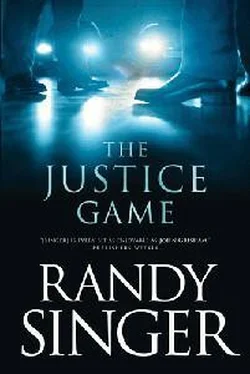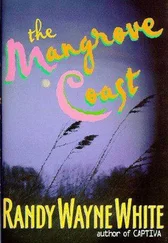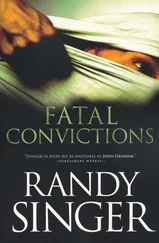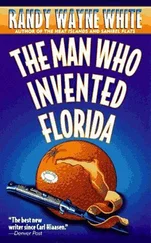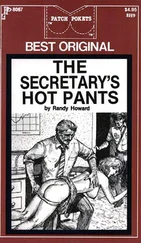Randy Singer - The Justice Game
Здесь есть возможность читать онлайн «Randy Singer - The Justice Game» весь текст электронной книги совершенно бесплатно (целиком полную версию без сокращений). В некоторых случаях можно слушать аудио, скачать через торрент в формате fb2 и присутствует краткое содержание. Жанр: Криминальный детектив, на английском языке. Описание произведения, (предисловие) а так же отзывы посетителей доступны на портале библиотеки ЛибКат.
- Название:The Justice Game
- Автор:
- Жанр:
- Год:неизвестен
- ISBN:нет данных
- Рейтинг книги:4 / 5. Голосов: 1
-
Избранное:Добавить в избранное
- Отзывы:
-
Ваша оценка:
- 80
- 1
- 2
- 3
- 4
- 5
The Justice Game: краткое содержание, описание и аннотация
Предлагаем к чтению аннотацию, описание, краткое содержание или предисловие (зависит от того, что написал сам автор книги «The Justice Game»). Если вы не нашли необходимую информацию о книге — напишите в комментариях, мы постараемся отыскать её.
The Justice Game — читать онлайн бесплатно полную книгу (весь текст) целиком
Ниже представлен текст книги, разбитый по страницам. Система сохранения места последней прочитанной страницы, позволяет с удобством читать онлайн бесплатно книгу «The Justice Game», без необходимости каждый раз заново искать на чём Вы остановились. Поставьте закладку, и сможете в любой момент перейти на страницу, на которой закончили чтение.
Интервал:
Закладка:
Okay, he was ready for the worst-case scenario. He would take the blow, congratulate his opponent, and spend a few days analyzing what went wrong. Afterward, he would move on to the next case. That’s what lawyers did. But he also knew a loss would stick with him for months, maybe years. Obsession? Most definitely.
He shrugged. It is what it is. Underneath the laid-back exterior, a 24/7 Oscar performance designed to lure others into underestimating him, Jason was a warrior. He lived to compete.
Knowing he could survive the worst case, he banished any further thoughts of losing. Today, he would play the role of the gracious victor, and he allowed himself to imagine the scene in his mind. He would barely react to the verdict, as if it were just a formality, as if he’d known all along.
Van Wyck would be sentenced to life in prison. And Jason would start getting ready for the next case.
6
Jason pulled into the student parking lot at Pepperdine Law School. He parked and quickly found his way to the second-floor courtroom, where a private security guard stood with his arms crossed, a listening device in his right ear.
Jason nodded at the man, entered the courtroom, and spent the next few minutes giving the broadcast crew and court clerk a hard time. He had liked trying the Van Wyck case here. The school had recently renovated the courtroom, installing state-of-the-art technology, including three wall-mounted cameras and two ceiling-mounted ones, all controlled remotely from a soundproof booth. The inconspicuous technology had been less distracting than in other trials, where Jason felt like he was trying a case and acting in a movie all at the same time.
Jason clipped his battery pack to his belt, threaded the wire between the buttons on his shirt, and clipped the miniature mic to his tie. He did a quick sound check, poured himself a glass of water, and took a seat at counsel table, leaning back and crossing his legs-left ankle on right knee. It was the pose of indifference. What-me worry? Austin Lockhart paced in small circles near his own counsel table, exchanging small talk with his client.
A few minutes later, the bailiff entered the room and called the court to order. Judge Waters followed close on his heels, took her seat, and had the bailiff bring in the jury. She glanced quickly at both lawyers, and Jason gave her a faint smile, which she chose to ignore.
Jason wiped his hands on his pant legs and folded them on the table. His moist fists made a little water stain on the polished glass and he discreetly pulled them back, his right arm on the armrest and left hand under his chin. He had won every case in the last two years, but his nerves still frayed at the sight of a jury shuffling into their seats, heads down, somber-looking.
Juror 5 was definitely not smiling. Juror 7, a single mom who shopped at Costco and read Janet Evanovich novels and Ann Coulter books, was not smiling either.
Despite his earlier bravado, Jason did not have a good feeling about this one.
He reached for his glass and took a sip of water.
“Do you have a verdict?” Judge Waters asked.
“We do.” The foreperson was Juror 4, a nicely dressed middle-aged woman in the back row. She worked in PR for one of the Hollywood studios. Drank Diet Mountain Dew. Subscribed to Entertainment Weekly. Voted Democrat. Contributed to green causes and PETA. Definitely not Jason’s choice for forewoman.
She handed the slip containing the verdict to the bailiff, who in turn handed it to the judge.
Judge Waters studied it for a minute, seemingly enjoying her chance to torture the lawyers. How long does it take to read the word guilty?
She handed it back to the bailiff and nodded. The bailiff walked to the center of the courtroom, and Judge Waters asked the defendant and her lawyer to stand. The bailiff held the paper in front of him, as if preparing to read from an ancient scroll of Scripture in the middle of the Temple. He waited, soaking in the moment.
“We the jury, on the count of murder in the first degree, find the defendant…” The bailiff hesitated.
Time stood still. Jason wanted to puke.
“… guilty.” The bailiff looked straight at the defendant and Austin Lockhart. Jason barely reacted, other than a quick glance at his two favorite jurors accompanied by a slight nod. They both acknowledged the look with a discreet smile, proud of their role in the deliberation process.
Austin had the jury polled while Jason leaned back in his seat, watching each juror affirm the verdict as their own. After a series of mistrial motions, all of which were denied by Judge Waters, the jury was dismissed and the bailiff led them out.
One jury down, two juries to go.
This first jury, the one that got to watch the case unfold live, was the most important. But there were two other similar juries, seated in two other moot courtrooms, each watching the proceedings on closed-circuit TV. All three of these shadow juries were made up of Los Angeles-area residents and were designed to mimic the exact characteristics of the real jury, who had been impaneled a few days earlier to hear the actual case in a downtown L.A. courtroom.
Jason’s company, Justice Inc., was a sophisticated jury consulting and research firm. For major trials, they impaneled three shadow juries as soon as the actual jury was seated. The company rushed through a confidential mock trial in a few days of intense proceedings, arriving at a verdict well before the real trial concluded. A prediction for the real case would then be communicated to privileged investors and would result in millions of dollars of stock purchases or option sales surrounding the affected companies.
The shadow jurors were paid handsomely and sworn to confidentiality. In addition, they would only know the verdict for their own panel, so even if they broke the confidentiality agreement, they would not be able to leak complete results.
The first shadow jury, the one privileged to view Jason and the other lawyer in person, was the jury that most closely mirrored the actual jury. But the president of Justice Inc., Robert Sherwood, never liked putting millions of dollars on the line unless all three shadow juries reached the same result. Even then, the votes of individual jurors were fed into the company’s complex profiling software so unexpected results could be flagged and studied. The company’s high-priced analysts would also study the shadow juries’ deliberations for hours to make sure the outcomes weren’t a fluke, perhaps driven by one juror’s strong personality or a quirk in the mock trial proceedings that might not occur in the real case.
Jason settled into the second courtroom and watched the jurors assemble in the jury box after Judge Waters gave the word. For the first time in three days, the large screen on which the jurors had been viewing the proceedings had been replaced by live participants. Jason had not seen these jurors before and always found it interesting to compare the back-up mock jurors to the first-stringers. Even though the micromarketing profile of each juror had been carefully screened to reflect the micromarketing profile of the corresponding member of the real jury, each shadow panel looked significantly different from the others. For example, this panel’s Juror 5, one of Jason’s main allies according to her profile, was thinner and had a skeptical scowl that had never crossed the face of Juror 5 in the main moot courtroom.
But looks weren’t the key. As Robert Sherwood phrased it, “Man looks on the outside, but Justice Inc. looks at the heart.” It was classic Sherwood-part satire, part arrogance, and dead-on accurate. He was a man to be feared and respected, if not entirely admired.
Each shadow juror had been selected based on how closely they tracked the micromarketing profile of an actual juror. Political parties, medications taken, shopping habits, magazines read, religious backgrounds, favorite Internet sites and TV shows, sports teams, ages of children, even the type of car each juror drove-all of these factors and a hundred more had been carefully researched and analyzed by Justice Inc.’s massive investigative team. Complex software programs weighted each factor according to the type of case involved, then filtered the prospective jurors using an algorithm based on the weighted factors, identifying virtual clones of the actual jurors.
Читать дальшеИнтервал:
Закладка:
Похожие книги на «The Justice Game»
Представляем Вашему вниманию похожие книги на «The Justice Game» списком для выбора. Мы отобрали схожую по названию и смыслу литературу в надежде предоставить читателям больше вариантов отыскать новые, интересные, ещё непрочитанные произведения.
Обсуждение, отзывы о книге «The Justice Game» и просто собственные мнения читателей. Оставьте ваши комментарии, напишите, что Вы думаете о произведении, его смысле или главных героях. Укажите что конкретно понравилось, а что нет, и почему Вы так считаете.
